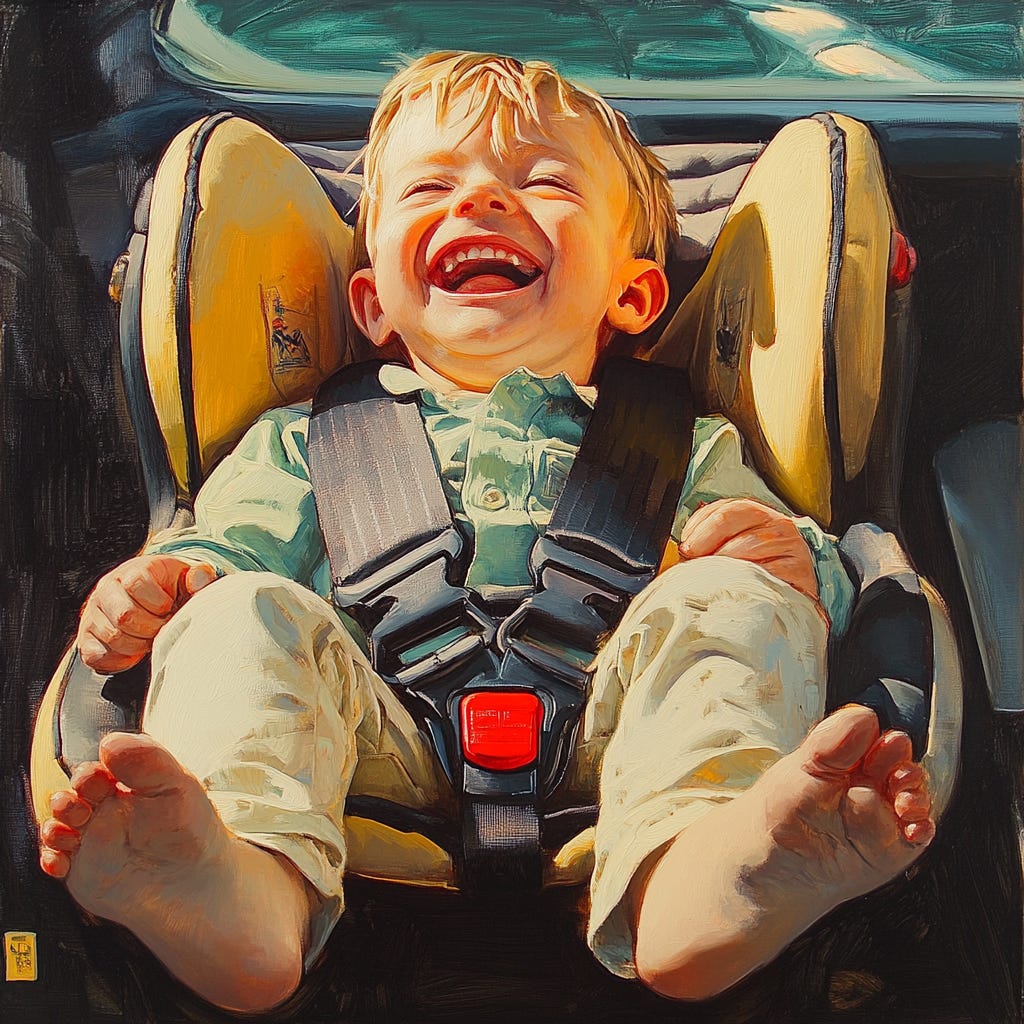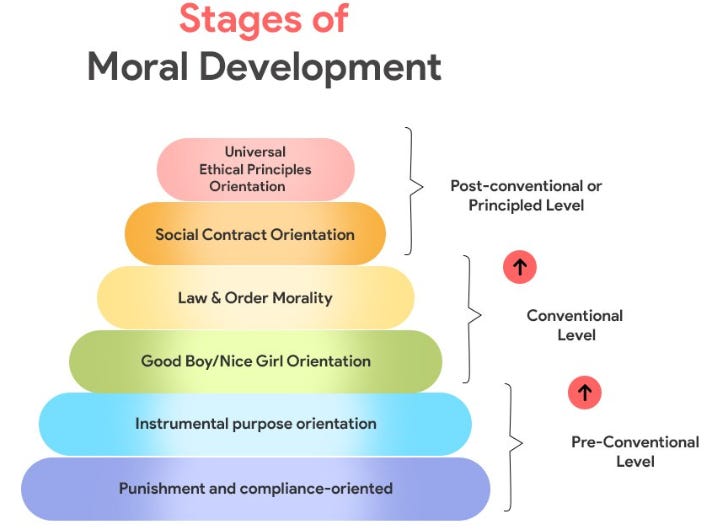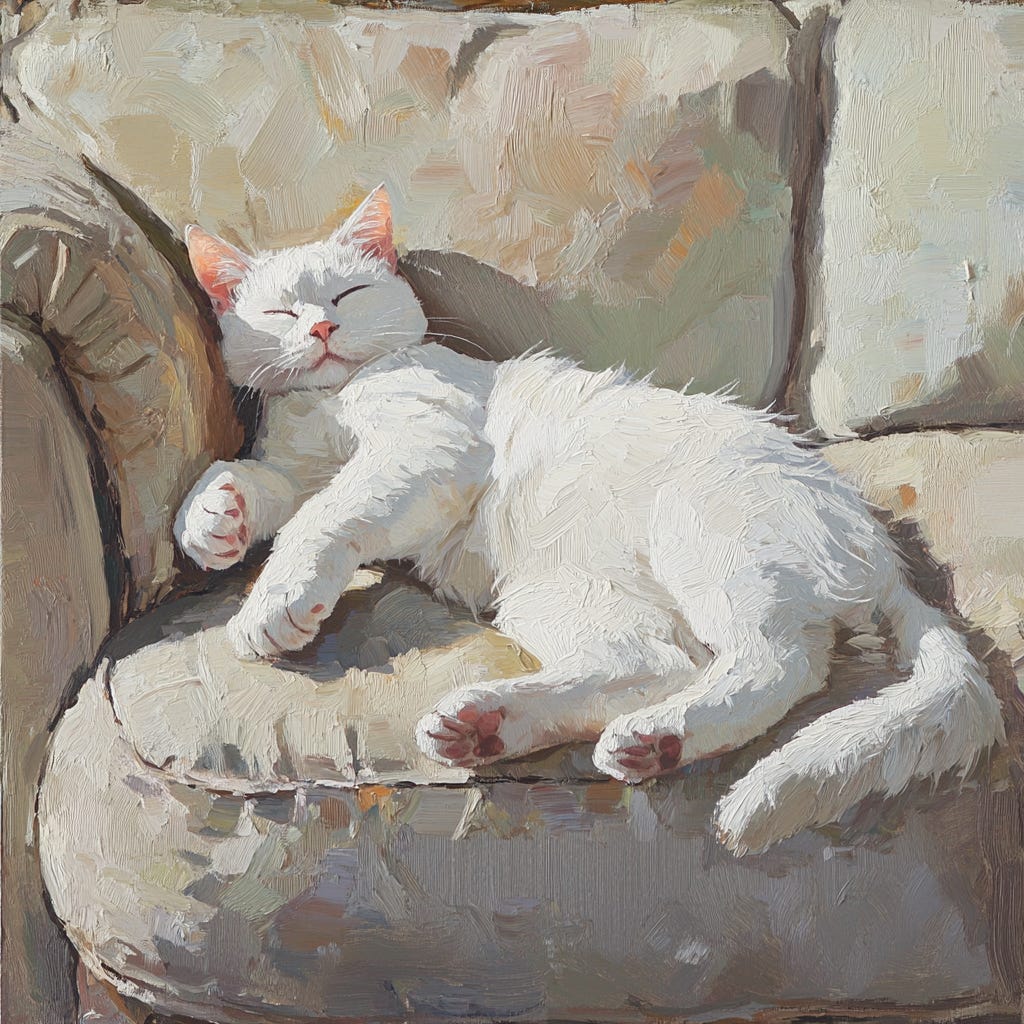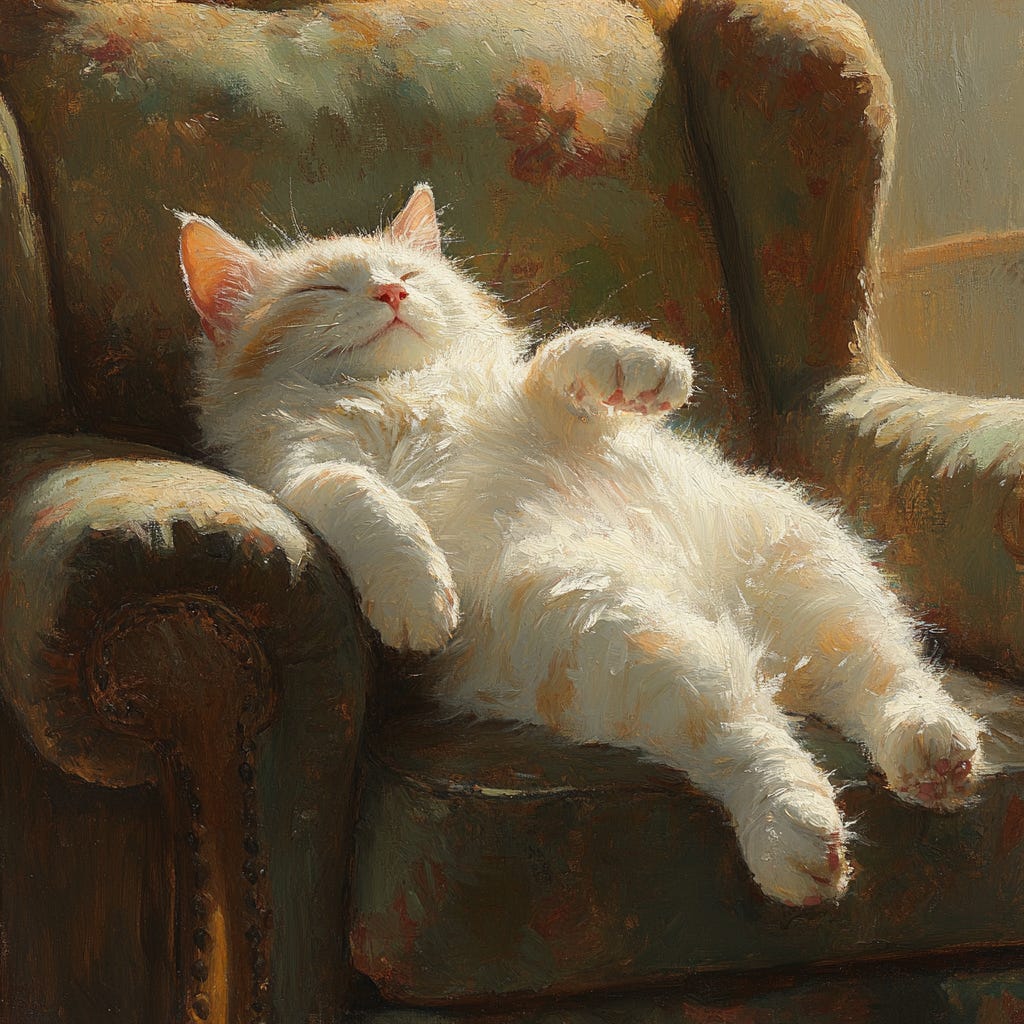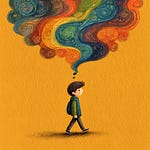My earliest memory might actually be a fabrication. It’s a fleeting image - I’m buckled in a safety seat in the back of our blue sedan and I look down at a big, red button clasped by four straps. That’s all it is. If I sleuth the details from this fleeting instance, I’m probably about three years old but it’s hard to say. Memory, after all, is incredibly unreliable.
What makes it even more fascinating is what we know about the psychology of children at this age. At about three years old, my tiny mind would only just be beginning to prise apart the distinction between self and world. A baby can make no such distinction. Clever experiments have shown a baby sees a chair, but to all intents and purposes, is the chair. It is it’s squalling frustration, is the gurgling spout of joy that makes its mum coo.
Shortly after the realisation sets in, infants get mad, a phase we call the terrible twos. Honestly you can’t blame the children - here you are, emerging from a biological and emotional unity with your mother, and suddenly feel a viol ent schism with your self and world. Of course it’s emotionally distressing. There’s a reasonable chance I was crying in my memory. But this is only the first step in a hierarchy of development that gets increasingly complex.
Even if I was, say, four years old in that memory, my developing sense of self still wouldn’t have been able to perform basic social functions. A famous demonstration shows how simple this egocentric conception of self is; show a toddler a ball with one side painted red and the other green. Place it down in front of them with the red side facing them and the green toward you. Ask them what side is facing them and toddler me would have correctly said red. But ask me what side is facing the adult and my tiny brain would have confidently also said red.
That is because a human has to develop the capacity to take the perspective of others (and some, sadly, never do). It is not something we are born with. In fact, it wouldn’t be until I was seven or eight that I would be able to tell you the adult was seeing green. As you can see from the diagram, in fact, there are many more stages available to us - which yours truly is still diligently climbing, albeit slowly with many faltering steps - which basically equates to an increasingly complex conception of self.
There is a whimsical urge we grasp for, especially as we get older and the demands of world and life spiral wider, to return to a kind of simplicity that denies the truth of our growing complexity. In my own life, I notice this arises on stressful days when I look at my cat sunning himself and feel a stroke of jealousy. He doesn’t have to worry about anything! He gets fed and patted regularly! I wouldn’t mind such a comfortable, simple existence.
Of course, this is stupid. My cat also has only the most elementary experiences of pleasure and understanding of the world around him. His ability to adapt is limited. He is perpetually egocentric and incapable of advancing beyond this in a single lifetime (or nine). So I make the case to you today; resist the siren-song of simplicity, insist on complexity, because the truth is always - without exception - stranger and more wondrous than you think.
Complexity = Happiness
It’s even good for your happiness.
In psychological literature, self-complexity is a hallmark of development and good mental health. This goes beyond your conception of self and world becoming more worldly and capable of integrating a variety of world views. Patricia Linville wrote in the 80s that we all possess aspects of a unified sense of self that are ‘activated’ by various experiences. If an individual has limited frameworks to interpret these activating experiences, Linville posits they ‘spill over’ into other self-aspects. In other words, my toddler self could only interpret upsetting events in terms of an insult to a limited, still-forming ego. No wonder toddlers are so angry.
By contrast, individuals with many self-aspects have plenty of egoic buckets to put upsetting (and uplifting!) experiences. It’s a little like diversifying your portfolio - by allowing our ‘selves’ to have many characteristics, ontologies, mythologies and personalities, the easier it is to activate different ‘selves’ to absorb the chaotic experiences reality periodically hurls at us. As I grew to understand that others saw a different color on the ball to me, I developed another self-aspect that could explain why other people acted differently to how I wanted them to.
Far from splitting one’s personality into schizophrenic shards, this new self-aspect actually allows you to preserve a sense of self by reaching for another bucket to store and integrate the experience. Going through something painfully novel - like, say, a teenager trying to individuate in high school, even as their peer-group becomes increasingly important - actually requires us to grow an entire new self to effectively cope, even thrive.
Admittedly, the literature also suggests simple models of self are great in fair weather circumstances (my cat just needs warmth, comfy pillows and regular meals for supreme satisfaction). New criticisms of Linville’s model thus emphasise the importance of integration of self-aspects in the service of a unified self; once, after a difficult time in my life, I found myself experiencing inexplicable bouts of anger. I’m generally an optimistic, happy dude, and was particularly perturbed by these fits of rage. The solution? I had been repressing my anger in the name of being a nice guy for much of my life - gradually I developed a new ‘angry Hoysted’ bucket, and accepted this was part of who I was rather than stuffing it into my existing ‘nice guy’ persona. It was tremendously healing.
That’s the thing. Even the negative stuff can be embraced and integrated into a person growing to mirror the complexity of the world we find ourselves in. Don’t push feelings away - lean into your multitudes. Don’t be a brittle toddler.



